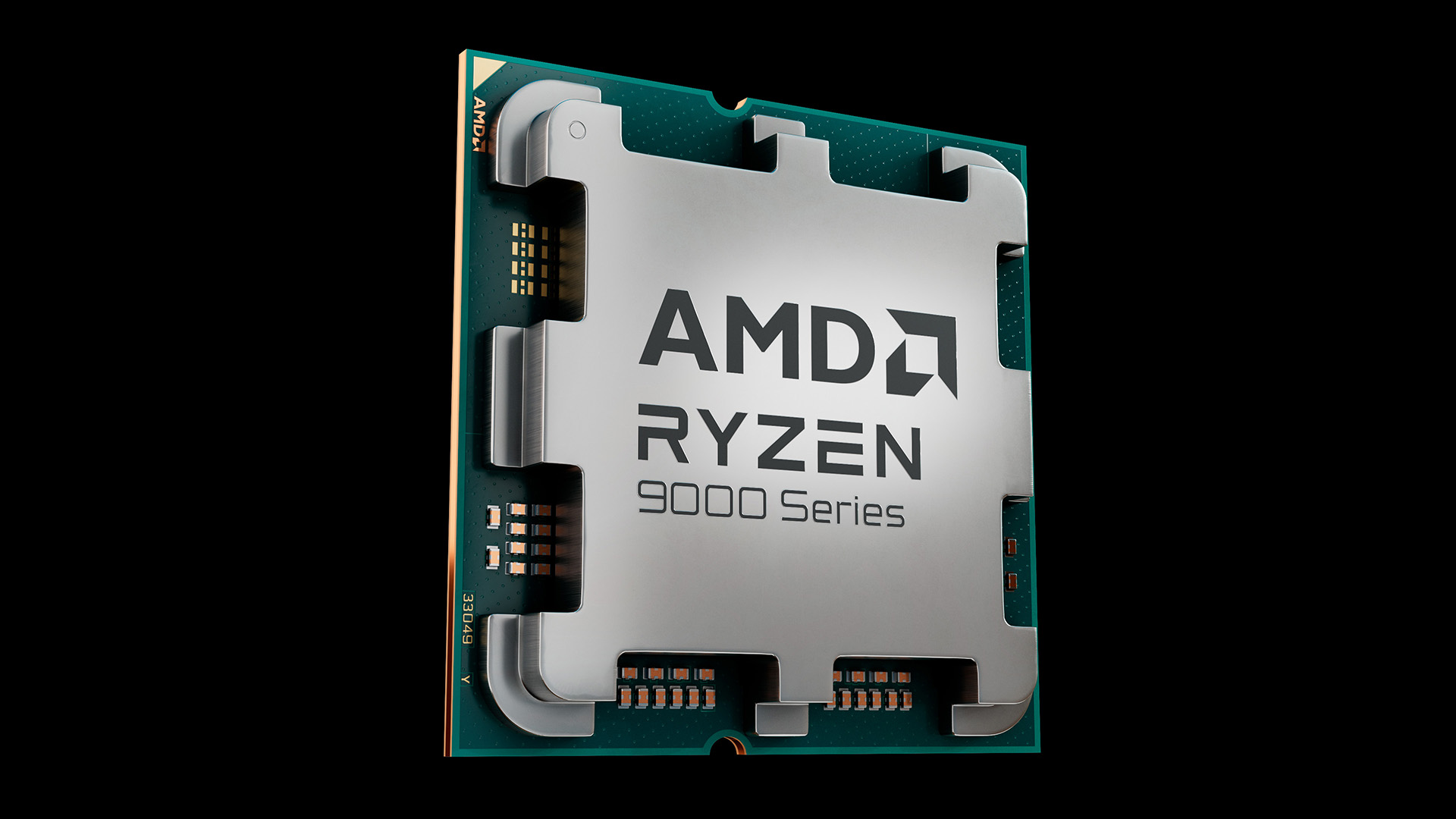AMD's Krackan Point APUs tipped to arrive for desktop soon as Ryzen 9000G series — New AGESA code adds support for Ryzen AI 300 series in BIOS update

AMD debuted the Ryzen AI 300 series back at CES 2025 in January, and since then, various rumors have hinted that the mobile-only family might eventually expand into desktop. Today, we have our most concrete confirmation of that possibility yet, with a new BIOS update that directly connects to Krackan Point. Spotted by renowned leaked HXL, AGESA version 1.2.7.0 was released for select MSI motherboards yesterday, and it came packaged with the microcode "00B60Fxx" which is reserved for Krackan Point (and Krackan Point 2) CPUs.
AM5 Krackan Point APU Coming soon? The new AGESA 1207 adds KRK/KRK2 CPU microcode.https://t.co/fFx4Lg2QhF pic.twitter.com/9uI23qDEBwOctober 20, 2025
While this doesn't necessarily confirm anything — after all, we're talking about data-mined information that's not even included in release notes — the timing makes sense. Previously, it was rumored that a potential Ryzen 9000G series was expected to launch in Q4 2025, which lines up with this new BIOS update adding support for Krackan Point.
The last desktop APU release for AMD was Ryzen 8000G, based on Zen 4, while Krackan Point is built using the Zen 5 architecture and employs RDNA 3.5 integrated graphics, offering a substantial performance leap.
That being said, Strix Point is still more powerful, since it's a larger die with more CPU and GPU cores, but that seems to be reserved for mobile for now — though, all hope is not lost.
Just as a refresher: Ryzen AI 7 300 and Ryzen AI 5 300 are Krackan Point, while Ryzen AI 9 300 is Strix Point, and Ryzen AI (9) Max 300 is Strix Halo, but that's an entirely different class of APU. Krackan Point has only three SKUs thus far: the Ryzen AI 7 350 and AI 5 340, both of which are intended for mid-range devices, alongside the Ryzen AI 5 330 aimed at lower-end laptops (that represents Krackan Point 2 silicon).
SKU | Family | Cores/Threads | Compute Units (RDNA 3.5) | NPU | TDP | Release |
|---|---|---|---|---|---|---|
Ryzen 7 9700G* | Krackan Point (desktop) | 8 cores (4x Zen 5 + 4x Zen 5c), 16 threads | Radeon 860M – (8 CUs) | 50 TOPS | 65W | Q4 2025* |
Ryzen 5 9500G* | Krackan Point (desktop) | 6 cores (3× Zen 5 + 3× Zen 5c), 12 threads | Radeon 840M – (4 CUs) | 50 TOPS | 65W | Q4 2025* |
Ryzen AI 7 350 | Krackan Point (mobile) | 8 cores (4x Zen 5 + 4x Zen 5c), 16 threads | Radeon 860M – (8 CUs) | 50 TOPS | 15-54W | February 2025 |
Ryzen AI 5 340 | Krackan Point (mobile) | 6 cores (3× Zen 5 + 3× Zen 5c), 12 threads | Radeon 840M – (4 CUs) | 50 TOPS | 15-54W | February 2025 |
Ryzen AI 5 330 | Krackan Point (mobile) | 4 cores (1× Zen 5 + 3× Zen 5c), 8 threads | Radeon 820M – (2 CUs) | 50 TOPS | 15-54W | July 2025 |
Ryzen AI 9 HX 375 | Strix Point | 12 cores (4x Zen 5 + 8x Zen 5c), 24 threads | Radeon 890M – 16 CUs | 55 TOPS | 15-54W | July 2025 |
Ryzen AI 9 HX 370 | Strix Point | 12 cores (4 Zen 5 + 8x Zen 5c), 24 threads | Radeon 890M (16 CUs) | 50 TOPS | 15-54W | July 2025 |
Ryzen AI 9 365 | Strix Point | 10 cores (4x Zen 5 + 6x Zen 5c), 20 threads | Radeon 880M – (12 CUs) | 50 TOPS | 15-54W | July 2025 |
* rumored; not confirmed.
All of these could translate well to desktop on the AM5 platform, especially considering the power limits would be lifted to 65W (from 54W) to allow for higher sustained clock speeds. The point here is that AMD's mobile options have largely superseded Ryzen 8000G across the board, so an update was long overdue in this department, even if most people would much rather have Strix Point right now. Remember, the primary selling point of APUs (on desktop) is their value proposition, so it makes sense that Strix Point isn't making that jump right away
Get Tom's Hardware's best news and in-depth reviews, straight to your inbox.
That's because manufacturers have reported it costing twice as much as Ryzen 8000G, which would make pricing undesirable for the end-user. Still, because the only thing separating Strix and Krackan are core configs and arbitrary naming conventions, there's a chance that both could be combined into a unified Ryzen 9000G series. Regardless, we're at the very least likely getting a potential Ryzen 5 9500G and Ryzen 7 9700G, and if it tops out there then the 9700G's iGPU might actually be a downgrade to the 8700G on paper — since it (Radeon 860M) only has 8 CUs vs 12 CUs on the older model, ignoring the graphics IP differences.
Time will, of course, tell, and we suspect we'll know a lot more about this after AMD's CEO, Lisa, gives the keynote at CES 2026 in January of next year.

Follow Tom's Hardware on Google News, or add us as a preferred source, to get our latest news, analysis, & reviews in your feeds.

Hassam Nasir is a die-hard hardware enthusiast with years of experience as a tech editor and writer, focusing on detailed CPU comparisons and general hardware news. When he’s not working, you’ll find him bending tubes for his ever-evolving custom water-loop gaming rig or benchmarking the latest CPUs and GPUs just for fun.
-
usertests A fully enabled Krackan APU would be somewhere between the 8600G and 8700G. Not a worthless product if people are paying $200 for the 8600G, but the 8700G would remain the top desktop APU if Strix Point doesn't make it onto the socket.Reply -
usertests Reply
They are interesting chips, but usually not beating low-end CPU + dGPU on price/performance. This point was hammered home heavily back when the 8700G was reviewed. Gamers Nexus compared it to i3-12100F + RX 6500 XT and RX 6600, while Tom's Hardware compared it to i3-13100 + GTX 1650.Dntknwitall said:APUs are looking good for entry level gaming PCs.
A Krackan desktop APU wouldn't make sense above $200, and ideally would be much cheaper. It would have less gaming performance than the 8700G.
AMD, Nvidia, and Intel (no B380 follow-up) have neglected the low-end, and especially 75W low-profile. But it would only take one good successor to the RX 6400, 6500 XT, or RTX 3050 6GB to blow Phoenix/Hawk, Krackan, and Strix Point out of the water. Even if you use new cards with older CPUs like the i3-12100, the CPU is usually not the bottleneck.